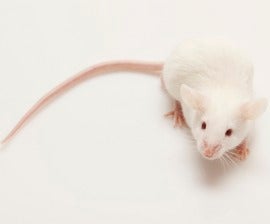-

HSI works to promote animal protection through trade agreements. Przemyslaw Rzeszutko/istock
The European Union is often regarded as a world leader in animal protection issues, and is also one of the largest players in global trade in the world. The EU incorporates provisions on animal welfare, sustainable development, and environmental protection into its trade agreements.
HSI sees this increased focus on trade policy and trade agreements as an opportunity to strengthen the link between animal protection and trade in the EU by building on existing provisions.
To this end, HSI is working to influence European trade policy in a number of ways. HSI regularly meets with representatives from the relevant Directorate-General offices, such as DG Trade, DG Environment and DG SANCO, to advocate for the inclusion of strong animal protection provisions in trade agreements and to influence trade negotiations.
HSI also regularly meets with members of the Parliament’s International Trade Committee, routinely follows Parliamentary debates and hearings relevant to trade policy, provides background briefings to MEPs and suggests possible amendments to Parliamentary reports and resolutions.
In addition, HSI actively participates in the DG Trade Civil Society Dialogue, which provides an important source of information on trade policy to NGOs and allows HSI to establish and further develop a good line of communication with Commission officials. Transatlantic Trade and Investment Partnership.
In recent years, the EU has sought to create additional market opportunities by negotiating bilateral and regional Free Trade Agreements. For example, the EU has concluded FTAs with the following countries: Chile, South Korea, Mexico, and South Africa. FTAs are still under negotiation with Singapore, Malaysia, Canada, India, and Ukraine. However, the largest and most prominent ongoing negotiations are with the United States.
In July 2013, the EU started its negotiations for a Transatlantic Trade and Investment Partnership with the United States largely intended to spur economic growth and create new jobs for both countries. Working on both sides of the Atlantic, TTIP has become a top priority for HSI.
TTIP and farm animals
TTIP is highly likely to increase trade — or at least increase the opportunity for trade — in agricultural products, including beef, pork, poultry and eggs. Statutory farm animal welfare standards covering issues, such as housing, transport and slaughter, are currently much higher in the EU.
For example, the EU has bans and restrictions on the most extreme animal confinement systems, such as sow stalls, battery cages and veal crates, which undoubtedly compromise the welfare of animals. At the federal level, the U.S. has only one regulation that includes some protections at the time of slaughter, and only a few states have banned extreme confinement systems. Our briefing highlights these and other differences with respect to animal welfare.
We believe it is vital that in the pursuit of trade and regulatory cooperation, EU animal welfare measures not be downgraded and the TTIP must not stand in the way of future EU regulatory advancement.
Animal testing and research
Our second TTIP area of interest is the protection of animals used in laboratories . Millions of animals are used in laboratory research and product testing throughout the world. HSI’s focus is to ensure that outdated animal tests are replaced with cutting-edge non-animal techniques.
The EU has made great progress, passing legislation that substantially reduces animal testing, prohibiting the sale of cosmetics newly tested on animals, introducing non-animal methods of vaccine batch testing, and reducing use of animals involved in chemical safety assessments as part of the REACH regulation.
Regulatory cooperation proposed in TTIP must not dismantle or diminish existing EU measures on animal testing and research, nor restrict future regulations. Instead, we campaign for regulatory alignment of 3R best practice to increase testing efficiency, reduce costs and above all, reduce the need for animal use.
Wildlife trade
The illegal wildlife trade is a global black market activity threatening not just the survival of targeted wildlife species and wildlife habitat, but also security, good governance and economic development.
Rhinos and elephants, for example, are experiencing a poaching epidemic controlled by organised criminal networks, and proceeds from the illegal trade fund terrorist and other illegal activities. In the marine environment, many species are in danger of extinction as a result of illegal, unreported and unregulated fishing and fishing subsidies that result in overfishing and depletion of stocks.
The sustainable development chapter of TTIP can serve as an opportunity for the EU and US to show global leadership in combating wildlife trafficking and preserving the earth’s natural resources. TTIP must include strong measures to protect threatened wildlife from trade, to implement and enforce critical multilateral environmental agreements, and to require strong penalties for those engaging in this illegal trade.
